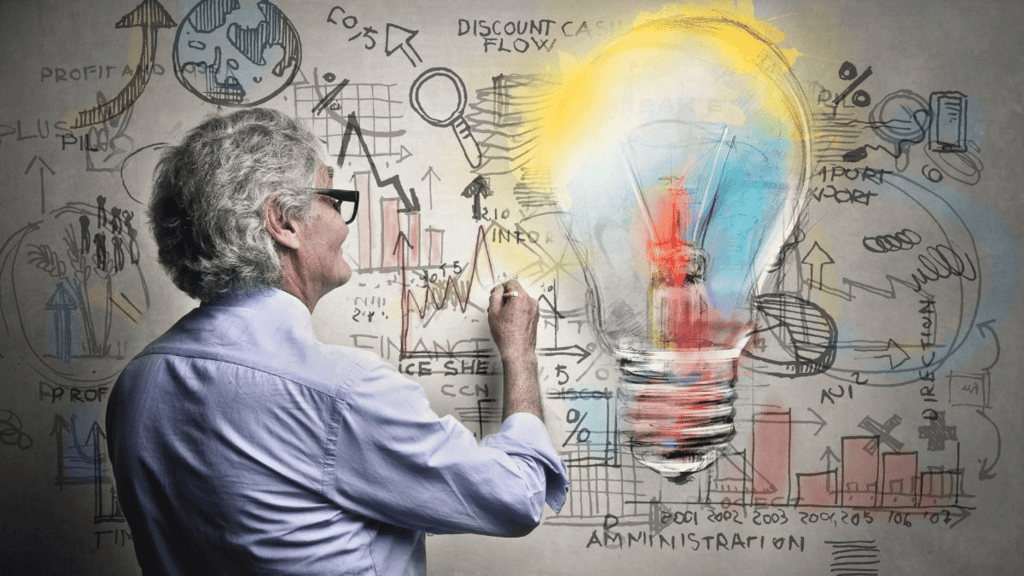CUET Commerce Exam > CUET Commerce Notes > General Test Preparation for CUET UG > Inventions & Discoveries
Inventions & Discoveries | General Test Preparation for CUET UG - CUET Commerce PDF Download
Invention and Discoveries
Human ingenuity has driven countless inventions and discoveries, shaping our world in profound ways. From groundbreaking scientific theories to practical tools that revolutionized daily life, these innovations are the result of tireless curiosity and dedication.
Here's a list of some significant inventions and discoveries, along with the individuals credited with them:
| Invention/Discovery | Name of the Inventor | Year of Invention |
|---|---|---|
| Automatic Calculator | Wilhelm Schickard | 1623 |
| Air Conditioner | Willis Carrier | 1902 |
| Anemometer | Leon Battista Alberti | 1450 |
| Animation | J. Stuart Blackton | 1908 |
| Atom Bomb | Julius Robert Oppenheimer | 1945 |
| Aspirin | Dr. Felix Hoffman | 1899 |
| Airplane | Wilber and Orville Wright | 1903 |
| Adhesive tape | Richard G. Drew | 1923 |
| Bifocal Lens | Benjamin Franklin | 1779 |
| Barometer | Evangelista Torricelli | 1643 |
| Barbed Wire | Joseph F. Glidden | 1873 |
| Blood Group | Karl Lansdsteiner | 1900s |
| Bicycle Tyres | John Boyd Dunlop | 1888 |
| Pedal Driven Bicycle | Kirkpatrick Macmillan | 1839 |
| Celluloid | Alexander Parkes | 1861 |
| Chloroform | Sir James Young Simpson | 1831 |
| Cine Camera | Wm. Friese-Greene | 1889 |
| Circulation of blood | William Harvey | 1628 |
| Clock Mechanical | Hsing and Ling-Tsan | 1725 |
| Diesel Engine | Rudolf Diesel | 1892 |
| Centigrade Scale | Anders Celsius | 1742 |
| Chlorine | Carl Wilhelm Scheele | 1774 |
| Dynamite | Alfred B. Nobel | 1867 |
| Diesel Engine | Rudolf Diesel | 1895 |
| Electric stove/cooker | William S. Hadaway | 1896 |
| Electroscope | William Gilbert | 1600s |
| Electric Fan | Schuyler Wheeler | 1882 |
| Electric Battery | Volta | 1800 |
| Elevator | Elisha G. Otis | 1852 |
| Electric Motor (DC) | Thomas Davenport | 1873 |
| Electromagnet | William Sturgeon | 1824 |
| Fountain Pen | Petrache Poenaru | 1827 |
| Fluorine | André-Marie Ampère | 1810 |
| Gramophone | Thomas Edison | 1878 |
| Hydrogen | Henry Cavendish | 1766 |
| Helicopter | Igor Sikorsky | 1939 |
| Hovercraft | Christopher Cockerell | 1959 |
| Hot Air Balloon | Josef & Etienne Montgolfier | 1783 |
| Helium | Jules Janssen | 1868 |
| Insulin | Sir Frederick Banting | 1923 |
| Jet Engine | Hans Von Ohain | 1936 |
| Lightning Conductor | Benjamin Franklin | 1752 |
| Locomotive | George Stephenson | 1804 |
| Laser | Theodore Maiman | 1960 |
| Light Bulb | Thomas Edison | 1854 |
| Motorcycle | Gottlieb Daimler | 1885 |
| Microscope | Zacharis Janssen | 1590 |
| Microphone | Alexander Graham Bell | 1876 |
| Machine Gun | Richard Gatling | 1861 |
| Neon Lamp | Georges Claude | 1915 |
| Oxygen | Joseph Priestley | 1774 |
| Ozone | Christian Schonbein | 1839 |
| Piano | Bartolomeo Cristofori | 1700 |
| Printing Press | Johannes Gutenberg | 1440 |
| Parachute | Louis-Sebastien Lenormand | 1783 |
| Polio Vaccine | Jonas Edward Salk | 1955 |
| Periodic Table | Dmitri Mendeleev | 1869 |
| Penicillin | Alexander Fleming | 1928 |
| Pacemaker | Rune Elmqvist | 1952 |
| Petrol for Motor Car | Karl Benz | 1885 |
| Refrigerator | William Cullen | 1748 |
| Radium | Marie & Pierre Curie | 1898 |
| Rubber (vulcanized) | Charles Goodyear | 1841 |
| Rocket Engine | Robert H. Goddard | 1926 |
| Radio | Guglielmo Marconi | 1894 |
| Richter Scale | Charles Richter | 1935 |
| Ship (Turbine) | Charles Parsons | 1894 |
| Steam Ship | Robert Fulton | 1807 |
| Steam Boat | Robert Fulton | 1786 |
| Submarine | Cornelis Drebbel | 1620 |
| Stethoscope | Rene Laennec | 1816 |
| Saxophone | Adolphe Sax | 1846 |
| Sewing Machine | Elias Howe | 1846 |
| Steam-Powered Airship | Henri Giffard | 1852 |
| Soft Contact lenses | Otto Wichterle | 1961 |
| Synthesizer | Dr. Robert Arthur Moog | 1964 |
| Thermometer | Galileo | 1593 |
| Theory of Evolution | Charles Darwin | 1858 |
| Typewriter | Christopher Latham Sholes | 1867 |
| Transistors | John Bardeen, William Shockley & Walter Brattain | 1948 |
| Telephone | Graham Bell | 1874 |
| Valve Radio | Sir J.A Fleming | 1904 |
| Vacuum Cleaner | Hubert Cecil Booth | 1901 |
| Vitamin A | Frederick Gowland Hopkins | 1912 |
| Vitamin B | Christiaan Eijkman | 1897 |
| Vitamin C | Albert Szent-Gyorgi | 1928 |
| Vitamin K | Henrik Dam | 1929 |
| Vitamin E | Herbert McLean Evans & Katherine Scott Bishop | 1922 |
| Windshield Wipers | Mary Anderson | 1903 |
| World Wide Web | Tim Berners Lee with Robert Cailliau | 1989 |
| X-ray | Wilhelm Conrad Roentgen | 1895 |
| Xerox Machine | Chester Carlson | 1928 |
These inventions and discoveries have profoundly shaped the course of human history, advancing technology, science, and medicine, and continue to influence our lives today.
The document Inventions & Discoveries | General Test Preparation for CUET UG - CUET Commerce is a part of the CUET Commerce Course General Test Preparation for CUET UG.
All you need of CUET Commerce at this link: CUET Commerce
|
164 videos|628 docs|1136 tests
|
FAQs on Inventions & Discoveries - General Test Preparation for CUET UG - CUET Commerce
| 1. What are the key differences between an invention and a discovery? |  |
Ans. An invention refers to the creation of a new product or process that did not previously exist, often resulting from innovative thinking and design. A discovery, on the other hand, involves finding or identifying something that already exists in nature but was previously unknown to humanity. Inventions are typically man-made, while discoveries are often related to natural phenomena.
| 2. How do inventions impact society? |  |
Ans. Inventions have a profound impact on society by improving quality of life, enhancing productivity, and driving economic growth. They can lead to new industries, create jobs, and solve existing problems. For example, inventions in healthcare can lead to better treatments and improved public health, while technological inventions can revolutionize communication and information access.
| 3. Who are some famous inventors and their notable inventions? |  |
Ans. Some famous inventors include Thomas Edison, known for the electric light bulb; Alexander Graham Bell, who invented the telephone; and Nikola Tesla, recognized for his work on alternating current. Other notable inventors include Marie Curie for her research on radioactivity and Steve Jobs for the development of the iPhone and other revolutionary technologies.
| 4. What is the process of patenting an invention? |  |
Ans. The process of patenting an invention involves several steps: First, the inventor must conduct a patent search to ensure the invention is unique. Next, they must prepare a detailed patent application that includes claims and descriptions of the invention. This application is then submitted to the patent office, where it is examined for compliance with patent laws. If approved, the inventor receives exclusive rights to the invention for a specific period.
| 5. Why are inventions important for technological advancement? |  |
Ans. Inventions are crucial for technological advancement as they serve as the foundation for new technologies and innovations. Each invention builds upon previous knowledge and creates opportunities for further developments. This cumulative process accelerates progress in various fields, including medicine, communication, transportation, and manufacturing, ultimately leading to a more advanced and efficient society.
Related Searches





















